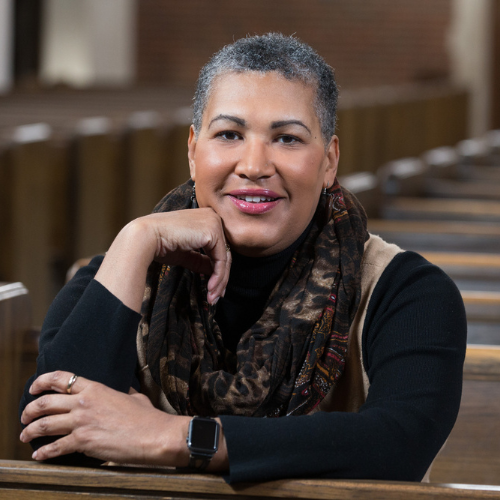We are glad you landed on our new page as your settle into the routine of sermon preparation!
Looking around the brand-new site, you recognize much of what has always already been. Three weeks later and the post-election moment expose the dramatic changes that have occurred leave us exactly where we were already. Same-ole, same-old but nonetheless in need of a new work, a stimulating word, and a compelling witness.
In some ways these landings are not unlike the reality of today’s text.
Your listeners have heard the same reports over and over again. As with many of our sacred readings, especially during special days and festive seasons, we hear these accounts in annual repetition.
Yet, this year, the rhythm of days has not accelerated familiarity. The pandemics of global disease, political dysfunction, mental distress, and racial division unsettle us. For some, everything is the same, but nothing is different. For others, nothing has changed but everything is different.
We, human ones, created in the image of the One who assigned seasons and festivals to order our lives, long for stability. But … not … like … this!
I do not think I am the only one who longs for a return to normal while admitting little about the normal we have been living resembles the good of God’s reign proclaimed in Christian Scripture. I don’t like to admit it, but my routines of work and worship, workouts and witness, wondering and wanderings do not regularly call people to say Christ is King.
As you complete your preparation for this coming Sunday, marked in the liturgical year as when Christian worshipers around the globe gather to acknowledge Christ is King, be mindful that the world needs this witness more than Thanksgiving, election results, or a stable stock market.
I am not suggesting the sound bite: Jesus is the Answer. The story behind that sound bite has for centuries offered a compelling invitation to question the flaws of our political, economic, educational, and cultural systems. The story behind that sound bite unsettles us to seek ethical, equitable, and essential practices. The story behind that sound bite has captivated persons from every walk of life around the globe to cling to hope in the most horrendous of circumstances.
We all have heard several sermons on this week’s proclamation of the reign of God as recorded in Matthew. So have our listeners. It’s a puzzling one for sure. Unsettling to find that those who extended a bit of generosity to the hungry, thirsty, homeless strangers in their neighborhoods caught the attention of the very King of the Universe.
And others—those who have been serving in Jesus’ name with enthusiasm—will be no less shocked to learn that by ignoring those designated by our standards as the least, have in some way left Jesus himself neglected, abandoned, and underserved.
Like the prophet Ezekiel’s confrontation to ancient Israel (Ezekiel 34), God “takes stock” of the weak, lost, and outcasts to achieve the creational intention: to form a people with whom the Spirit so evidently abides that the world takes notice of the Creator God. In order to restore community, those who pushed aside the weak, ignored the needy, and undermined the stranger will be held accountable.
This week, this year, this moment, the witness of those who gather in Jesus’ name cannot afford to domesticate Jesus into a representative of good citizenship and stable social relations. For such a time as this, the King of the Universe cannot be relegated to a distant deity hovering over eternity until making a glorious entrance while fires devastate counties and drought afflicts continents.
Christians must not suggest God’s activity in the world resembles an observer of The Amazing Race while coronavirus afflicts millions and civil war becomes a way of life across the world.
Heaven help us.
The world has changed. But the fluctuations only return us to the way things have always been.
We are ending ordinary time to enter a season of expectation. Seems fitting for cultural context such as ours now.
The ancient text testifies with irenic wisdom to saints of old as well as present-day saints who are called to attend to the women and children, widows and orphans, hungry and thirsty, naked and homeless, neighbors and strangers, aliens and outcasts just as the cloud of witnesses who came before us.
I invite you to be found extending grace, practicing generosity, and demonstrating a godliness that offers a glimpse of what it means to experience the love of God in Christ Jesus our Lord. It is still true that as we long for reconnecting with our friends, family, neighbors, and co-workers the simple invitation to community is indeed good news—because that is what will be a signpost for the arrival of the Son of God.
And trust that we, the Working Preacher team, are praying for you as Paul prayed for the followers of Christ in ancient Ephesus:
“that the God of our Lord Jesus Christ, the Father of glory, may give you a spirit of wisdom and revelation as you come to know him, so that, with the eyes of your heart enlightened, you may know what is the hope to which he has called you, what are the riches of his glorious inheritance among the saints” (Ephesians 1:17-18).
Christ indeed in King,
Joy

